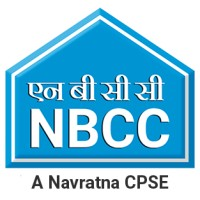Gurugram's Green View Project: A Tug of War Between Safety and Compliance
August 9, 2024, 6:05 am

Location: India, Delhi
Employees: 1001-5000
Founded date: 1960
Total raised: $2.82M
In the bustling city of Gurugram, a storm brews over the NBCC Green View residential project. The Gurugram administration has denied the National Buildings Construction Corporation (NBCC) permission to demolish the project, a decision that has sent ripples through the community. This high-profile development has become a battleground for safety concerns, regulatory compliance, and the rights of residents.
The NBCC Green View project, located in Sector 37D, has been under scrutiny for alleged violations of building codes. Structural audits conducted by prestigious institutions like IIT-Roorkee and the Central Building Research Institute (CBRI) have deemed the buildings unsafe. The request for demolition came after these alarming findings. Yet, the administration's refusal to grant permission has sparked a complex debate.
At the heart of this issue lies the safety of residents. The buildings were flagged for structural integrity concerns, raising alarms about the potential risks to life and property. The administration's decision to deny demolition reflects a commitment to thorough investigation and due process. Officials emphasize the importance of ensuring that all regulatory standards are met before taking drastic actions like tearing down homes.
However, the residents, particularly those from the Economically Weaker Section (EWS), are caught in a web of uncertainty. Many flat owners oppose the demolition, fearing they will lose their homes without adequate compensation. Their grievances have led them to the Delhi High Court, where they seek justice and resolution. The court's involvement adds another layer of complexity to an already tangled situation.
The residents' plight is compounded by the administration's previous orders, which instructed them to vacate their flats by March 2022. Many EWS flat owners have yet to receive compensation for their properties, leaving them in a precarious position. The administration's refusal to demolish the buildings has not alleviated their concerns; instead, it has intensified the urgency for a resolution.
NBCC, for its part, has expressed a commitment to addressing the issues raised. The company has pledged to cooperate with authorities to ensure compliance with safety regulations. However, the path forward is fraught with challenges. The developer must navigate the legal landscape while also addressing the residents' demands for fair compensation.
In a letter to the Deputy Commissioner, NBCC highlighted the urgent safety risks posed by the structural issues. The developer referenced a previous order from the District Magistrate, which underscored the significant threats to life and property. Yet, despite these warnings, many residents remain skeptical of the developer's intentions.
The ongoing protests from EWS allottees reflect a broader sentiment of distrust. These residents have taken their grievances to the streets, demanding transparency and accountability from both the developer and the administration. Their voices echo the frustrations of many who feel powerless in the face of bureaucratic red tape.
As the situation unfolds, the administration's stance serves as a reminder of the delicate balance between compliance and public safety. The refusal to demolish the NBCC Green View project underscores a commitment to rigorous enforcement of construction regulations. However, it also raises questions about the efficacy of these regulations in protecting residents.
In the backdrop of this controversy, other developments in Gurugram's infrastructure continue to progress. Akasa Air, a burgeoning airline, aims to secure a spot among the top 30 global airlines by 2030. The airline has expanded rapidly, carrying millions of passengers and establishing a foothold in the competitive aviation market. Meanwhile, the Rapid Metro Gurgaon has reported a surge in revenue and ridership, signaling a growing reliance on public transport.
The introduction of the Kavach automatic train protection system by Indian Railways aims to enhance safety protocols on major routes. This initiative comes in response to tragic incidents, highlighting the importance of safety in transportation infrastructure.
As Gurugram navigates these multifaceted challenges, the fate of the NBCC Green View project remains uncertain. The tug of war between safety, compliance, and residents' rights continues. The administration's decision to deny demolition may have temporarily quelled the immediate threat, but it has not resolved the underlying issues.
The residents of NBCC Green View are left in limbo, awaiting a resolution that addresses their concerns. The ongoing court case and protests signal a community unwilling to back down. They seek not just safety, but justice and accountability.
In the end, the story of the NBCC Green View project is a microcosm of larger societal issues. It reflects the struggles of ordinary citizens against powerful entities. It underscores the need for transparency, fairness, and a commitment to public safety. As the dust settles, one thing is clear: the voices of the residents will not be silenced. Their fight for justice is just beginning.
The NBCC Green View project, located in Sector 37D, has been under scrutiny for alleged violations of building codes. Structural audits conducted by prestigious institutions like IIT-Roorkee and the Central Building Research Institute (CBRI) have deemed the buildings unsafe. The request for demolition came after these alarming findings. Yet, the administration's refusal to grant permission has sparked a complex debate.
At the heart of this issue lies the safety of residents. The buildings were flagged for structural integrity concerns, raising alarms about the potential risks to life and property. The administration's decision to deny demolition reflects a commitment to thorough investigation and due process. Officials emphasize the importance of ensuring that all regulatory standards are met before taking drastic actions like tearing down homes.
However, the residents, particularly those from the Economically Weaker Section (EWS), are caught in a web of uncertainty. Many flat owners oppose the demolition, fearing they will lose their homes without adequate compensation. Their grievances have led them to the Delhi High Court, where they seek justice and resolution. The court's involvement adds another layer of complexity to an already tangled situation.
The residents' plight is compounded by the administration's previous orders, which instructed them to vacate their flats by March 2022. Many EWS flat owners have yet to receive compensation for their properties, leaving them in a precarious position. The administration's refusal to demolish the buildings has not alleviated their concerns; instead, it has intensified the urgency for a resolution.
NBCC, for its part, has expressed a commitment to addressing the issues raised. The company has pledged to cooperate with authorities to ensure compliance with safety regulations. However, the path forward is fraught with challenges. The developer must navigate the legal landscape while also addressing the residents' demands for fair compensation.
In a letter to the Deputy Commissioner, NBCC highlighted the urgent safety risks posed by the structural issues. The developer referenced a previous order from the District Magistrate, which underscored the significant threats to life and property. Yet, despite these warnings, many residents remain skeptical of the developer's intentions.
The ongoing protests from EWS allottees reflect a broader sentiment of distrust. These residents have taken their grievances to the streets, demanding transparency and accountability from both the developer and the administration. Their voices echo the frustrations of many who feel powerless in the face of bureaucratic red tape.
As the situation unfolds, the administration's stance serves as a reminder of the delicate balance between compliance and public safety. The refusal to demolish the NBCC Green View project underscores a commitment to rigorous enforcement of construction regulations. However, it also raises questions about the efficacy of these regulations in protecting residents.
In the backdrop of this controversy, other developments in Gurugram's infrastructure continue to progress. Akasa Air, a burgeoning airline, aims to secure a spot among the top 30 global airlines by 2030. The airline has expanded rapidly, carrying millions of passengers and establishing a foothold in the competitive aviation market. Meanwhile, the Rapid Metro Gurgaon has reported a surge in revenue and ridership, signaling a growing reliance on public transport.
The introduction of the Kavach automatic train protection system by Indian Railways aims to enhance safety protocols on major routes. This initiative comes in response to tragic incidents, highlighting the importance of safety in transportation infrastructure.
As Gurugram navigates these multifaceted challenges, the fate of the NBCC Green View project remains uncertain. The tug of war between safety, compliance, and residents' rights continues. The administration's decision to deny demolition may have temporarily quelled the immediate threat, but it has not resolved the underlying issues.
The residents of NBCC Green View are left in limbo, awaiting a resolution that addresses their concerns. The ongoing court case and protests signal a community unwilling to back down. They seek not just safety, but justice and accountability.
In the end, the story of the NBCC Green View project is a microcosm of larger societal issues. It reflects the struggles of ordinary citizens against powerful entities. It underscores the need for transparency, fairness, and a commitment to public safety. As the dust settles, one thing is clear: the voices of the residents will not be silenced. Their fight for justice is just beginning.
